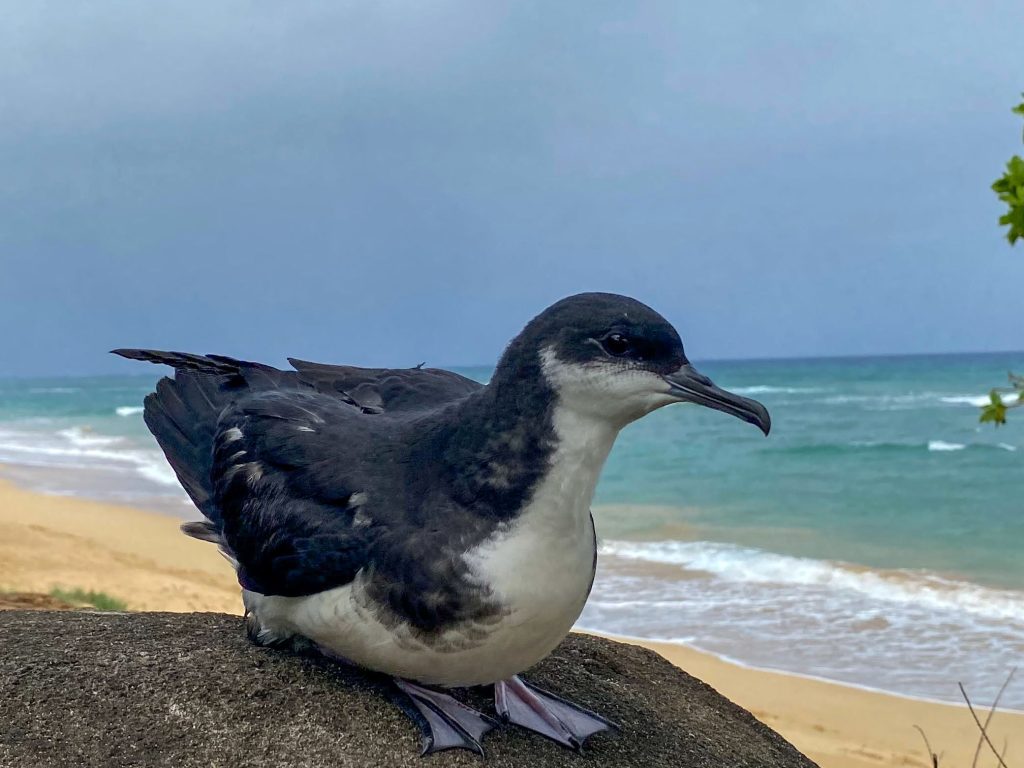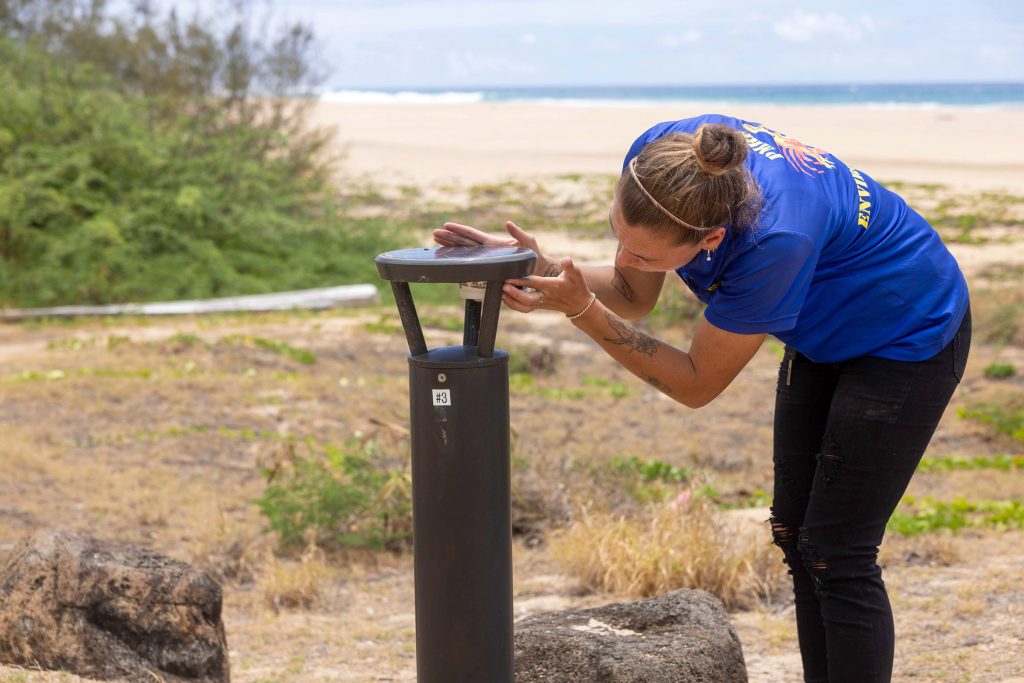Pacific Missile Range Facility aids in protecting threatened seabirds on kauaʻi
The annual fledging of Newell’s shearwaters (ʻAʻo) and Hawaiian petrels (ʻUaʻu) on Kauaʻi starts September 15 and runs through December 15, marking a critical period for two of Hawaiʻi’s most threatened seabirds.

The Pacific Missile Range Facility (PMRF) hosted its annual bird banding training September 9 and has begun preparations for fledging season, also known as the Dark Skies program.
Each year, young seabirds leave their mountain burrows for the first time and make their way to the ocean using the moon and stars as guides. Unfortunately, bright artificial lights can disorient fledglings, putting them at risk of injury or death.
The Dark Skies program, developed in partnership with federal, state, and community organizations, plays a vital role in protecting these birds by reducing light pollution and ensuring safer passage for fledglings. Bird banding allows researchers to monitor migratory paths, assess climate impacts, and gather data for conservation efforts.
Since the Dark Skies program’s inception, the number of fallen seabirds at PMRF has decreased significantly.
“The Dark Skies program demonstrates how environmental stewardship and mission readiness can work hand-in-hand,” said Commanding Officer Capt. Robert Prince. “Our ability to manage lighting at PMRF not only protects endangered seabirds, but it also supports the program’s research efforts and data gathering throughout the season.”
The Dark Skies program has contributed significantly to the recovery and survival of fledgling shearwaters and other native seabirds, assisting with providing a safe passage for potentially hundreds of fledglings that could have otherwise died from the impacts of artificial light pollution.

Measures include shielded lighting, reduced nonessential lights during peak fledging season, and community outreach to raise awareness about light pollution. These efforts have resulted in expanded awareness among Kauaʻi residents and businesses about responsible lighting practices and strengthened partnerships with environmental organizations and agencies committed to seabird recovery.
The leadership and dedication of officials overseeing the Dark Skies program remain central to its success. Their work ensures that Kauaʻi continues to be a place where seabirds thrive alongside vital defense operations.
Residents and businesses can do their part by dimming or shielding lights at night and reporting any downed seabirds to the Shearwater Hotline at 808-635-5117 or by taking the downed bird to the nearest aid station.
“Protecting Hawaiʻi’s native species is a shared responsibility,” Prince said. “Through this program, we can continue to make a positive difference in our conservation efforts for future generations.”



